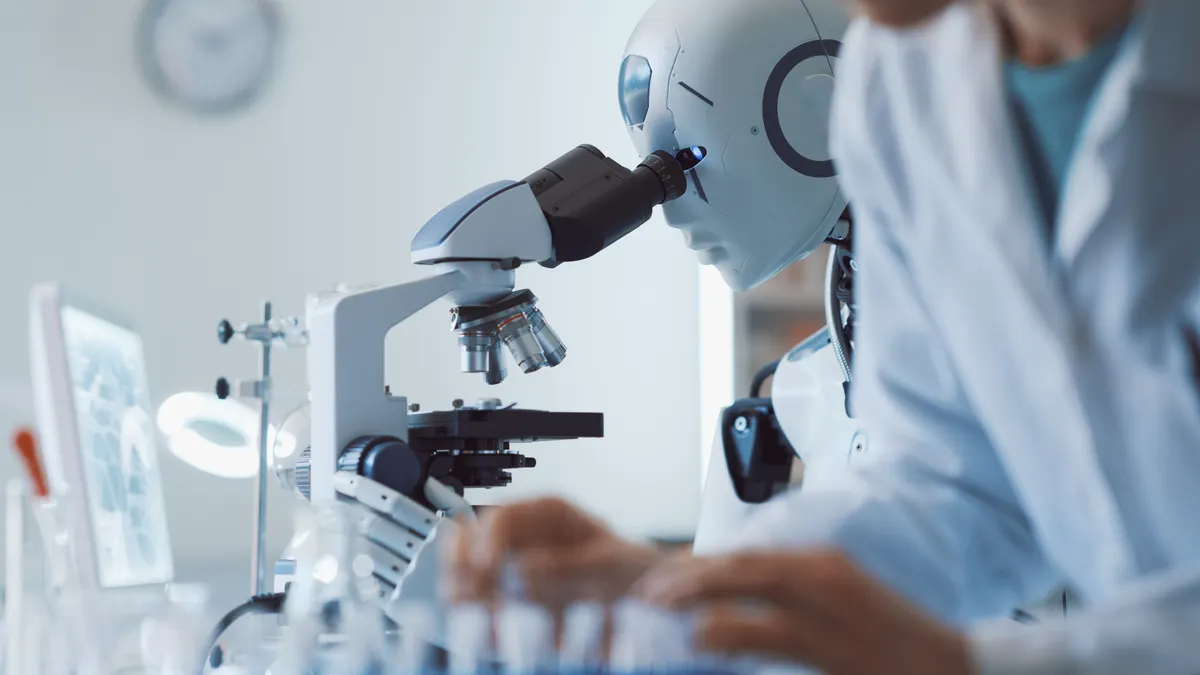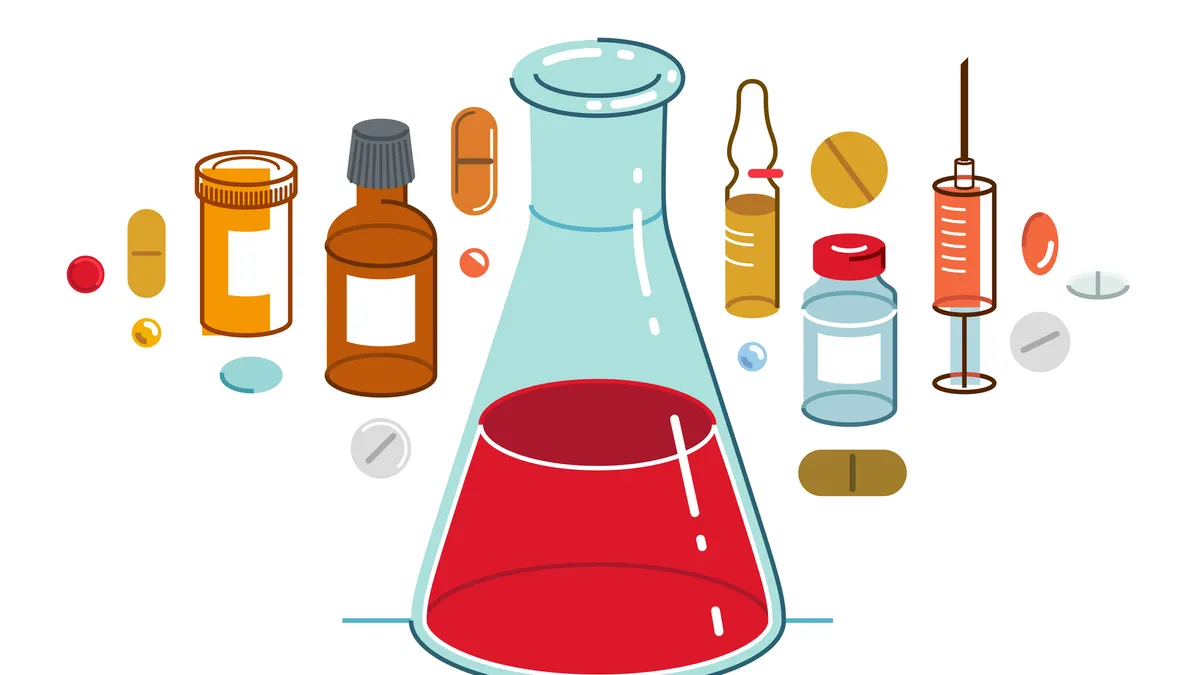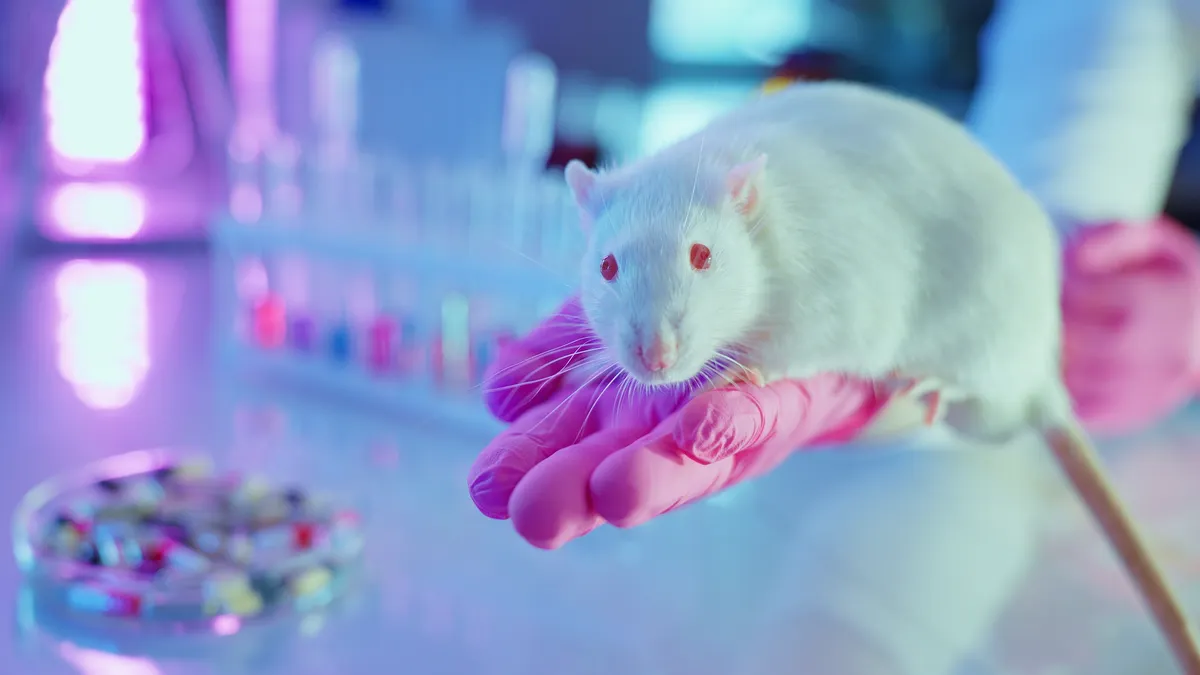Flagship Pioneering has a knack for peering into the future.
Recently, the $14 billion biotech venture capital firm that launches and runs its own companies has been leveraging that ecosystem to explore how preventive treatment can change the healthcare paradigm.
With its Preemptive Health and Medicine Initiative that began in 2022, general partner Avak Kahvejian sees “a vision for the future of how a lot of the technologies we already have at our disposal could be brought to bear not just to treat the sick but to keep us healthy longer or prevent sickness from getting worse.”
Announced today, the official launch of the AI-based preventive medicine biotech Etiome is the cornerstone of that initiative, said Kahvejian, who will lead the company as founding CEO from within Flagship. The unveiling comes after several years of research into Etiome’s temporal biodynamics platform, which will get a $50 million boost from the parent VC.
“Etiome’s intent was to look at a range of chronic diseases where people progress over time into a more and more severe situation, and to apply the technologies of single-cell transcriptomics and AI with digital health records to essentially tease out the molecular and cellular journey of the disease from the patient journey,” Kahvejian said.
But how do you track a disease’s progress over decades to aid drug development? That’s where AI comes in.
“One of the key challenges in this arena is, how are you going to follow people for 20 or 30 years to see what predisposed them to a disease? What are the early signs? How sick do they get?” Kahvejian said. “A lot of pharma has avoided that whole arena because of that mindset, and they focus on sick care.”
To get over that hurdle, Etiome conducts cross-sectional studies of a broad set of patients from early-, middle- and late-stage disease, and “stitches” them together at a phenotypic and molecular level to create a single snapshot over time. Imagine the way a digital camera stitches together individual photos across a landscape to create a panoramic view wider than the actual lens.
“When you apply these technologies to a different group or a wider aperture of patients, you start to elucidate these time courses that are highly revelatory and can give us new targets, new biomarkers and new opportunities to intervene,” said Kahvejian, who has co-founded more than 10 companies since 2011, including Seres Therapeutics, Ring Therapeutics, Ampersand Biomedicines and more.
“We’ve seen a hell of a lot of impact when we apply AI to the optimization and discovery of medicines."

Avak Kahvejian
General partner, Flagship Pioneering; Founding CEO, Etiome
As with many Flagship companies, Etiome is built on the back of a platform rather than a therapeutic area. But one of the first conditions the biotech set its sights on was fatty liver disease, tracking the progression of people with healthy livers to ones that have accumulated fat, which leads to inflammation and then cirrhosis and “catastrophic consequences” if left untreated.
“We know this could be a silent disease, because most people don’t know their livers are steatotic or accumulating fat,” Kahvejian said. “But when you do retrospective analysis, you realize there’s a higher percentage of people than the ones who are detected.”
Through molecular signatures and biomarkers, Kahvejian and the Etiome team identified patients who weren’t aware they had fatty livers and pulled the data together to build a disease journey. Those biomarkers and new targets could lead to an interventional treatment, he said.
‘We’re not investors — we’re practitioners’
Flagship is known as a biotech VC firm, but Kahvejian doesn’t really see it that way.
“We’re not investors — we’re practitioners, we’re protagonists, we’re inventors, we’re scientists, which means we apply these things rather than seeking them out and investing in them,” Kahvejian said, pointing out that Etiome’s use of AI doesn’t arise from technological hype. “We’re not sorting the wheat from the chaff. Instead we’re taking an agnostic approach, and we use AI to digest data and elucidate interesting targets and causality. That mindset is part of our DNA, no pun intended.”
One of Flagship’s first forays into the world of AI was Cellarity, founded by Kahvejian in 2017 around a machine learning platform designed to unravel the mysteries of cellular behavior and generate medicines based on those findings. The company has a sickle cell disease treatment in the final steps of preclinical development.
“We’ve seen a hell of a lot of impact when we apply AI to the optimization and discovery of medicines,” Kahvejian said. “Whether that’s at Cellarity, whether it’s at Generate:Biomedicines, whether it’s at Alltrna, everywhere we’re using these genetic medicines or sequence-based medicines, we’ve started to turn them into programmable medicines thanks to AI.”
Rather than performing due diligence on what’s already happening in biotech, Flagship pushes forward into the next big thing, Kahvejian said.
“I’ve never done due diligence in my life — I do diligent science,” Kahvejian said. “The way we work is, instead of trying to identify companies or identify professors per se, we’re trying to imagine the next things we can create. We make mistakes, either with something that has no utility or isn’t as broad as we thought, but our process involves shooting for that all the time.”
That approach has helped Flagship keep its finger on the pulse of the biotech world, he said, while aiming beyond it.
“By definition, you’re going to create things that don’t exist — you’re going to reach into areas that are uncharted, off the beaten bath,” Kahvejian said. “And then you’re working your way backwards and asking, is this useful? Does it matter? Can we do it? If the answer is no, then fine, come back to Earth and take another leap.”
Platform devotion
Conceived just before the turn of the century, Flagship has been unwavering in its devotion to platform companies.
“For 25 years, we’ve felt that it’s a formula that works,” Kahvejian said. “We’ve always been steadfast about doing highly innovative and differentiated — for better or worse — technologies and companies.”
To illustrate that approach, Kahvejian uses the example of perhaps the most well-known Flagship company: Moderna, the biotech darling that altered the course of the COVID-19 pandemic. Vaccines weren’t always the trajectory for the fledgling mRNA specialist.
“Moderna wasn’t built by saying ‘mRNA is good for vaccines,’” he said. “It was built with the notion that a programmable molecule like mRNA could have a range of uses, making proteins inside the cell or on the surface of a cell, or be used for cancer, for rare disease, for infectious disease, and so on.”
That agnosticism toward disease targets could result in a lack of direction in some cases, Kahvejian acknowledged, but flexibility is the key. For Moderna, the flexibility allowed quick action in the face of a global health crisis.
“We let the science guide the thinking and resource our experimentation appropriately — not to spread it thin like peanut butter, but nor should we just take one rifle shot,” he said.
“I’ve never done due diligence in my life — I do diligent science."

Avak Kahvejian
General partner, Flagship Pioneering; Founding CEO, Etiome
Innovation supply chain
Biotech investment has been difficult and selective over the past few years, but Flagship has weathered the storm more by degree than by direction.
“It’s more a tweak in how we execute rather than a wholesale change in strategy or change in philosophy,” Kahvejian said.
Flagship has stayed the course while others in the industry have shifted toward pragmatism, he said.
“There isn’t enough of that patient, visionary capital out there, and it’s unfortunate,” Kahvejian said.
But innovation in biotech is what feeds the whole life sciences armada, fueling tomorrow’s blockbusters and the pharma giants who depend on them. And so Kahvejian and others at Flagship, including CEO and founder Noubar Afeyan, believe in what they call the “innovation supply chain.”
“It’s something we envisioned a while back — [Afeyan] and I wrote an essay about the concept of an innovation supply chain in which the raw material for new medicines is new modalities, new understandings of biology, new targets,” Kahvejian said. “Pharma has been exceptionally good at making drugs against well-established targets, getting them through the clinic rigorously and deploying them into the market, but startups have zero business doing that on their own.”
Instead, Flagship collaborates with Big Pharma in a way that makes sense for both sides. Almost two years ago, Flagship and Pfizer teamed up to develop a pipeline of 10 drug candidates, equally sharing the investment load, with Flagship undertaking the early science and Pfizer gaining the opportunity to acquire the development program down the road.
The two companies this month announced their sixth official collaboration within that agreement — a platform called Logica from Flagship’s Valo Health, designed for drug discovery in the autoimmune space.
“By building these innovation supply chain deals, we’re essentially taking the best of what each does and bringing it together in a way that’s derisked for both,” Kahvejian said. “We need new types of medicines to solve some of our really pressing challenges, and that can be valuable and derisked if we do it this way — we think it’s a beautiful solution.”


















